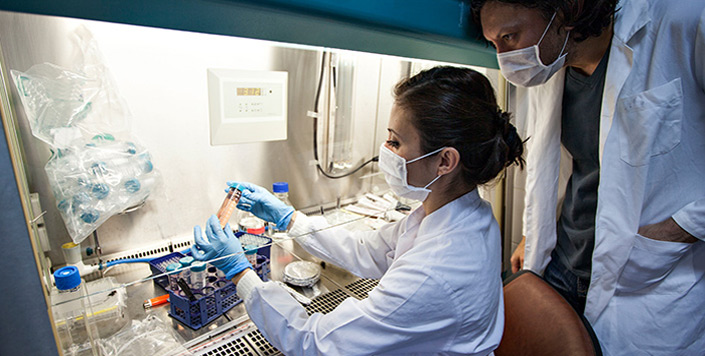
School of Medicine Publications and Presentations
Document Type
Article
Publication Date
5-12-2022
Abstract
GM-CSF is an important cytokine that regulates the proliferation of monocytes/macrophages and its various functions during health and disease. Although growing evidences support the notion that GM-CSF could play a major role in immunity against tuberculosis (TB) infection, the mechanism of GM-CSF mediated protective effect against TB remains largely unknown. Here in this study we examined the secreted levels of GM-CSF by human macrophages from different donors along with the GM-CSF dependent cellular processes that are critical for control of M. tuberculosis infection. While macrophage of different donors varied in their ability to produce GM-CSF, a significant correlation was observed between secreted levels of GM-CSF, survial of macrophages and intra-macrophage control of Mycobacterium tuberculosis bacilli. GM-CSF levels secreted by macrophages negatively correlated with the intra-macrophage M. tuberculosis burden, survival of infected host macrophages positively correlated with their GM-CSF levels. GM-CSF-dependent prolonged survival of human macrophages also correlated with significantly decreased bacterial burden and increased expression of self-renewal/cell-survival associated genes such as BCL-2 and HSP27. Antibody-mediated depletion of GM-CSF in macrophages resulted in induction of significantly elevated levels of apoptotic/necrotic cell death and a simultaneous decrease in autophagic flux. Additionally, protective macrophages against M. tuberculosis that produced more GM-CSF, induced a stronger granulomatous response and produced significantly increased levels of IL-1β, IL-12 and IL-10 and decreased levels of TNF-α and IL-6. In parallel, macrophages isolated from the peripheral blood of active TB patients exhibited reduced capacity to control the intracellular growth of M. tuberculosis and produced significantly lower levels of GM-CSF. Remarkably, as compared to healthy controls, macrophages of active TB patients exhibited significantly altered metabolic state correlating with their GM-CSF secretion levels. Altogether, these results suggest that relative levels of GM-CSF produced by human macrophages plays a critical role in preventing cell death and maintaining a protective differentiation and metabolic state of the host cell against M. tuberculosis infection.
Recommended Citation
Mishra, A., Singh, V. K., Jagannath, C., Subbian, S., Restrepo, B. I., Gauduin, M. C., & Khan, A. (2022). Human Macrophages Exhibit GM-CSF Dependent Restriction of Mycobacterium tuberculosis Infection via Regulating Their Self-Survival, Differentiation and Metabolism. Frontiers in immunology, 13, 859116. https://doi.org/10.3389/fimmu.2022.859116
Creative Commons License

This work is licensed under a Creative Commons Attribution 4.0 International License.
Publication Title
Frontiers in Immunology
DOI
10.3389/fimmu.2022.859116
Academic Level
faculty
Mentor/PI Department
Office of Human Genetics


Comments
© 2022 Mishra, Singh, Jagannath, Subbian, Restrepo, Gauduin and Khan.